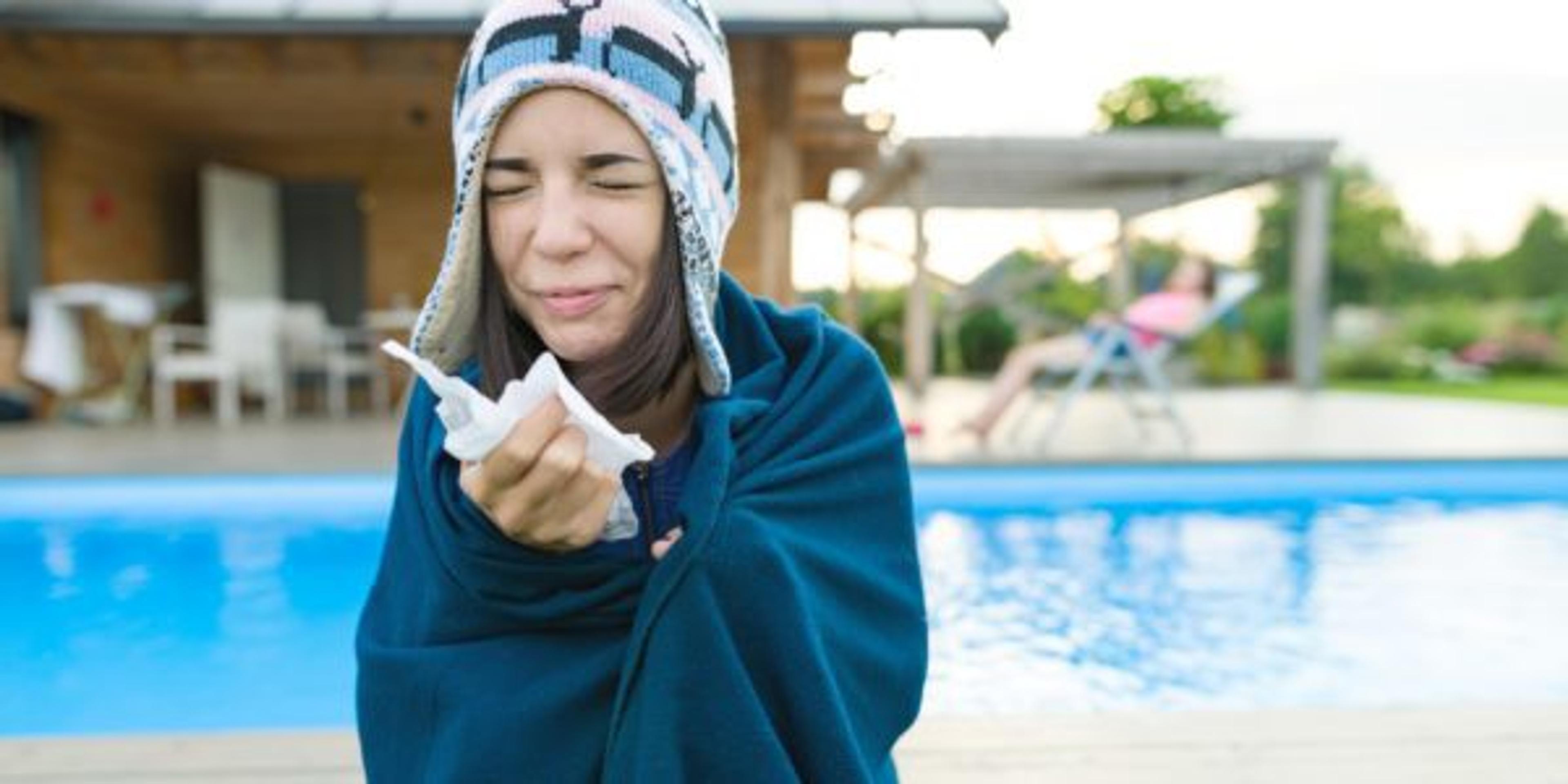Why Summer Colds Seem So Bad Right Now
Shandra Martinez
| 3 min read

Colds have always been passed around in the warmer months, but this season it seems like more people than ever are dealing with hacking coughs that just won’t go away, sneezing that lasts for days and congestion. If you think colds are worse right now than in other recent summers, you’re not imagining things. Health experts say there are a few reasons why colds seem so bad this summer.
Cases of common respiratory viruses – including the ones that cause cold and flu symptoms – are increasing this summer, according to the U.S. Centers for Disease Control and Prevention. This also includes an unusual spike in cases of respiratory syncytial virus (R.S.V.), which can be dangerous to young children and the elderly, as outlined in a recent New York Times article. This has led to more R.S.V. patients being hospitalized this summer than what healthcare workers normally expect to see.
Unmasking. Part of this rise in summer cold and flu viruses is likely due to people’s recent lack of face masks and relaxed practices for social distancing. When the coronavirus pandemic hit in early 2020, many people were diligent in wearing face masks, washing their hands and staying 6 feet away from others in an attempt to stem the spread of that virus. But as vaccines became widely available this spring and early summer, precautions relaxed. Many people stopped wearing masks and leaned back in for hugs and handshakes with family and friends. Some people who had been working remotely went back to their offices. This all meant more viruses were being spread in close quarters.
Sluggish immune systems. The spike in colds and other viruses does not mean people’s immune systems are not working, healthcare workers say. But after staying masked up and socially distanced for many months, people were not getting those regular germ exposures from crowded offices and restaurants and touching a dozen different surfaces during a trip to the gym. So, when they did shift back to normal social behaviors, some people’s immune systems might not have recognized a cold or flu virus intruder with the speed they once did. This has more people reaching for tissue boxes than in past summers.
Bad habits. Some poor health habits people picked up during the initial pandemic surge could also be playing a role in how their immune systems respond to viruses. Pandemic weight gain seemed to be a universal issue. But other people developed odd sleep habits, increased their alcohol intake, or just felt more stressed than they normally do. All these things can impact how the body’s immune system responds.
Prevention. So what’s the best way to steer clear of this uptick of summer colds? The CDC recommends getting back to basics with common sense cold-prevention techniques:
- Wash your hands frequently with soap and water, or use hand sanitizer that is at least 60% alcohol.
- Don’t touch your mouth, eyes or nose with unwashed hands.
- Stay away from people who are sick: sneezing, coughing or those who sound congested.
- Regularly disinfect high-touch surfaces in your home like doorknobs, light switches, countertops and sinks.
Related:
Photo credit: Getty Images





